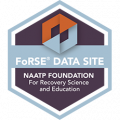Women’s Addiction Treatment Program in Kokomo, Indiana
Women face unique challenges throughout their daily lives. Women are the only ones that experience everything that goes along with childbirth, both mentally and physically. Unlike men, women are expected to be the more nurturing and caregiving sex in our society.
The challenges and expectations that are put on women specifically can be taxing. Sometimes the pressures put on women can reach a point where they turn to drugs or alcohol as a way to self-medicate. This often leads to substance abuse and addiction.
For those women battling addiction, it’s important that they get treatment from a facility that is meant to address them and their unique needs, such as a women’s addiction rehab center in Indiana.
At First City Recovery in Kokomo, Indiana we offer gender-specific addiction treatment programs. By doing so, we offer both men and women a safe and supportive environment where they can have their gender-specific needs met as it pertains to their addiction treatment.
Table of Contents
ToggleWhat is Gender-Specific Treatment?
Gender-specific treatment programs are designed specifically to treat men and women separately. Men and women not only experience addiction differently, but they also react differently to treatment.
Additionally, whether subconsciously or not, some men and women simply don’t feel comfortable opening up and being vulnerable around the opposite sex, especially those they don’t know.
Unfortunately, many women who are suffering from addiction experience some form of domestic violence or abuse. Their partner may even go so far as to actively prevent them from getting the help they need for their substance abuse. As a result, they may not feel comfortable being surrounded by men when they do finally go to treatment.
A gender-specific, women’s-only treatment program removes any fear that may come with having men around which can allow everyone to focus 100% of their time and energy on getting the help that they need.
What Are the Differences Between The Genders When It Comes To Addiction Treatment?
Addiction does not discriminate based on gender. That being said, men and women experience addiction and addiction treatment very differently.
Women often face different forms of trauma and mental health struggles compared to men such as:
- Domestic violence and abuse (verbal, physical, and/or sexual)
- Self-esteem issues
- Struggles associated with motherhood
- Body or self-image issues (this can often lead to eating disorders)
- Feelings is isolation or loneliness
- Chronic physical pain (often brought on by childbirth)
According to the National Survey on Drug Use and Health, there are also significant gender differences when it comes to substance abuse and addiction including:
- Rates of dependence
- Choice of substance
- The way the brain responds to substance use and abuse
- The reasons for using substances of abuse
Gender-specific treatment programs allows for the treatment center and staff to spend more time focusing on the unique challenges that women face.
What Are the Benefits of a Women’s Only Treatment Program?
Women’s only treatment programs are able to provide services and programs that may not be offered at co-ed treatment facilities.
For example, many women seeking treatment are the primary caregiver for their child or children. When going to treatment not only do they need accommodations for themselves, but they also may need accommodations for their children as well.

As we touched on earlier, many women who enter treatment have a history of domestic violence and abuse. As a result, they may not feel comfortable being around men or speaking openly about their problems if men are in the room. Even those women who have not been the victim of domestic violence, they too may feel more comfortable opening up about their substance abuse problems in a room full of only women.
Finally, those who are battling substance abuse and addiction while pregnant, or going through hormonal changes often require specialized medical treatment while in rehab. A women’s only treatment program will have the capacity to offer the unique medical care that those women may require.
What Can You Expect From a Women’s-Specific Treatment Program?
At First City Recovery Center, we offer a variety of women’s-specific treatment programs including:
- Medical Detox
- Alcohol Addiction Treatment
- Drug Addiction Treatment
Women’s Medical Detox
Regardless of gender, the first step in the addiction recovery process is medical detox. Detoxing is done in order to rid the body of all the harmful substances that are in it so that the brain and body can begin to heal.
A medical detox program can be done at a local medical facility, a dedicated detox center, or a treatment center that also offers detox services such as First City Recovery Center. Attempting to self-detox can be potentially life-threatening. It can also lead to an increased risk of relapse as the withdrawal symptoms get worse.
While medical detox is important for both men and women, it is even more crucial for women due to the way women’s bodies traditionally react to substances of abuse. Women are significantly more likely to experience dangerous side effects of drug and alcohol abuse. They are also more susceptible to long-term health issues and cravings.
All of these issues can be addressed at First City Recovery as part of our women’s detox program. We provide women’s only detox for the following substances of abuse:
- Alcohol
- Cocaine
- Heroin
- Fentanyl
- Benzos
- Methadone
- Meth
- Opioids
- Xanax
Women’s Alcohol Addiction Treatment
According to the CDC, roughly 2.5% of all women in the U.S. meet the diagnostic criteria for Alcohol Use Disorder (AUD). Additionally, nearly 10% of all pregnant women consume alcohol despite the dangerous effects that alcohol consumption can have on the fetus.
Since women are also more likely to experience long-term health issues related to alcohol abuse and addiction, they often require specialized Medication-Assisted Treatment (MAT).
In addition to women’s specific treatment services such as MAT, we also offer a variety of different alcohol addiction therapies as part of our women’s alcohol addiction treatment program including:
- Individual Therapy
- Group Therapy
- Family Therapy
- Cognitive Behavioral Therapy
- Dialectical Behavioral Therapy
- Experiential Therapy
- Motivational Interviewing
- Behavioral Modification
Women’s Drug Addiction Treatment
Women tend to use and abuse drugs in different ways than men.
While men are more likely to use and abuse drugs recreationally, women are more likely to abuse drugs due to mental health and physical health struggles. As a result, the way women experience the effects of drugs is also different. This can create unique obstacles and challenges for women in treatment.
At First City Recovery, we offer women’s specific drug addiction treatment designed to meet those unique challenges and obstacles that women face when it comes to drug abuse and addiction.
Our men’s drug addiction treatment program is available to those suffering from the following drug addictions:
- Cocaine
- Fentanyl
- Prescription Drugs
- Opioids
- Tramadol
- Xanax
- Meth
- Heroin
Aftercare Services
Recovery doesn’t stop once treatment has ended. Recovery is a life-long journey and something that has to be worked on every day. For those who have completed one of our women’s treatment programs, we also offer aftercare services to help support you on your lifelong recovery journey.
For those women looking for a safe place to live while they transition back into their daily lives, we offer sober living facilities in Indiana. We also offer a relapse prevention program in order to help some of our female alumni deal with the unique challenges they may face after they finish treatment.
Treatment Options for Women’s Specific Treatment
At First City Recovery Center, we know that even amongst our men’s specific treatment programs, not every treatment option is right for every person. That’s why we offer our men’s programs as part of all of our addiction treatment programs in Indiana including:
- Inpatient Treatment
- Outpatient and Intensive Outpatient Treatment
- Partial Hospitalization
Inpatient Treatment
Inpatient treatment is one of our more popular treatments amongst both our treatment professionals.
With inpatient treatment, you live at the facility for the duration of your treatment. By living at the facility, you are free of any and all temptations and distractions, allowing you to focus 100% of your time and energy on your treatment and getting sober.
Outpatient Treatment
Many women have the responsibility of being the primary caretaker for not just their children but also elderly family members as well. As a result, they may not have the luxury of being able to enter into an inpatient treatment program.
For those looking for an alternative to inpatient treatment, outpatient and intensive outpatient treatment can be great options. With outpatient treatment, you go to the facility during the day for your various therapy sessions and then you go home when you are done.
Partial Hospitalization
A partial hospitalization program combines aspects of both inpatient and outpatient treatment to create a unique program.
Partial hospitalization programs offer the structure and medical care of an inpatient program while allowing you to live at home and come to the facility for treatment like you would with an outpatient program.
Are You Looking For a Women’s Addiction Treatment Program in Indiana?
Women face unique challenges when it comes to getting the help that they need for drug and alcohol addiction.
At First City Recovery Center, we understand the importance of gender-specific addiction treatment. If you or a female in your life is in need of addiction treatment and could benefit from a men’s specific treatment program, contact us today.


MD, Psychiatrist
Dr. Vahid Osman, MD is a psychiatry specialist in Indianapolis, IN.
Dr. Osman completed a residency at Austin State Hospital. He has over 32 years of experience in Psychiatry & Behavioral Health. He is board certified by the American Board of Psychiatry and Neurology.





